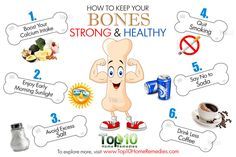As women age, maintaining strong and healthy bones becomes increasingly important. Osteoporosis, a condition characterized by weak and brittle bones, is more common in women than men. Therefore, taking steps to prioritize bone health can help prevent fractures and other complications later in life.
Eat a Balanced Diet Rich in Calcium and Vitamin D
Calcium and vitamin D are essential nutrients for maintaining bone strength. Foods like dairy products, leafy greens, and fortified cereals are excellent sources of calcium. Sunlight exposure is also crucial for the body to produce vitamin D. Consider taking supplements if you are not getting enough of these nutrients through your diet.
Engage in Weight-Bearing Exercises
Regular physical activity, particularly weight-bearing exercises like walking, running, and strength training, can help maintain bone density and reduce the risk of osteoporosis. Aim for at least 30 minutes of exercise most days of the week to keep your bones strong and healthy.
Avoid Smoking and Limit Alcohol Consumption
Smoking and excessive alcohol consumption can have negative effects on bone health. Smoking interferes with the body’s ability to absorb calcium, while alcohol can weaken bones and increase the risk of fractures. If you smoke or drink alcohol, consider quitting or reducing your intake to support bone health.
Get Regular Bone Density Screenings
Women over the age of 50, or those with a family history of osteoporosis, should consider getting regular bone density screenings. This test measures the strength and density of your bones, allowing healthcare providers to assess your risk of fractures and develop a plan to prevent osteoporosis.
Consult with a Healthcare Professional
If you have concerns about your bone health or risk factors for osteoporosis, consult with a healthcare professional. They can provide personalized recommendations for maintaining and improving bone strength, as well as prescribe medications or treatments if necessary.
Conclusion
Prioritizing bone health is essential for women of all ages, but becomes increasingly important as we grow older. By following a balanced diet, engaging in regular exercise, avoiding harmful habits, and seeking regular screenings and professional guidance, you can support strong and healthy bones throughout your life.
Remember to consult with a healthcare professional before making any significant changes to your diet or exercise routine to ensure they are appropriate for your individual needs. By taking proactive steps to maintain bone health, you can reduce the risk of osteoporosis and enjoy a healthier, more active lifestyle.
